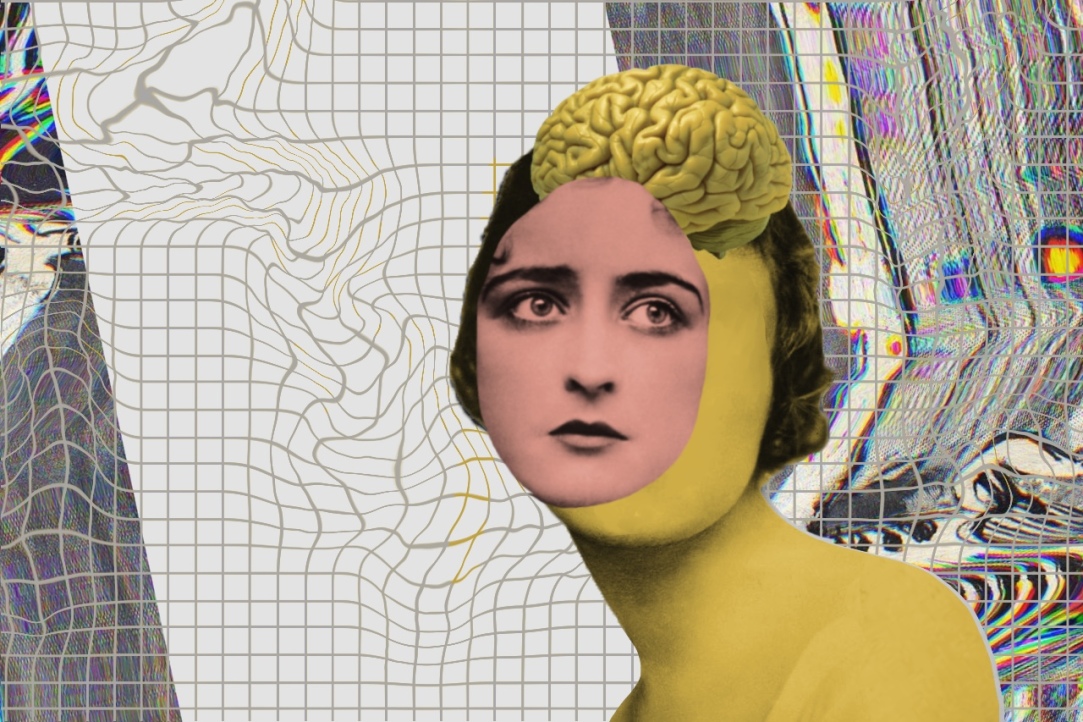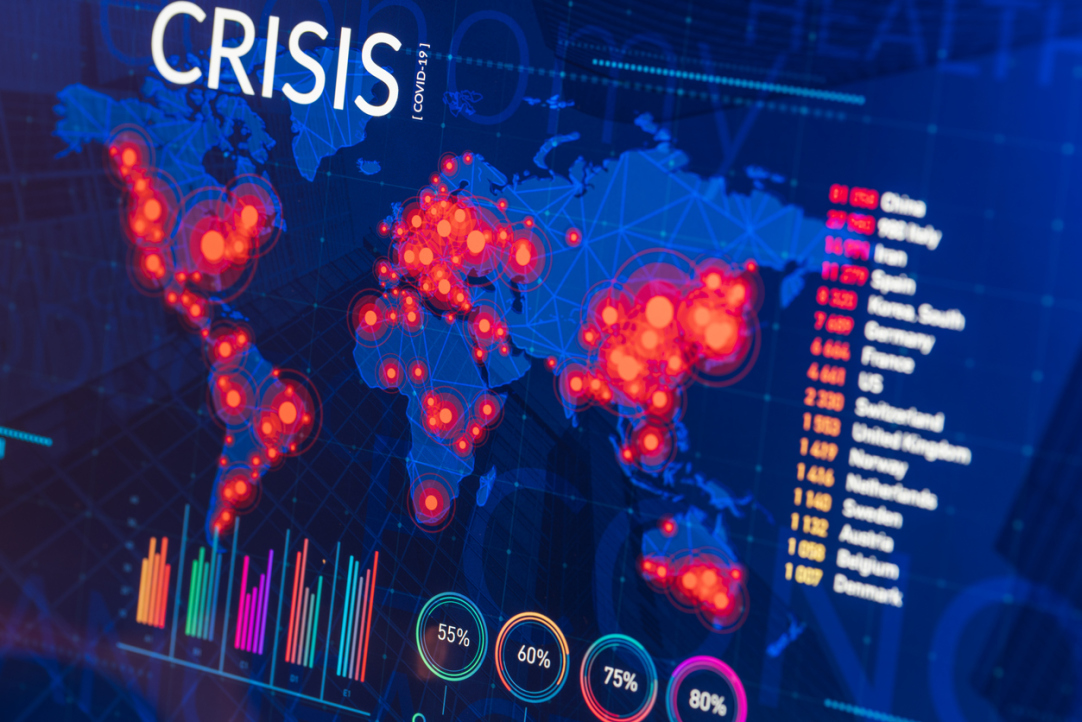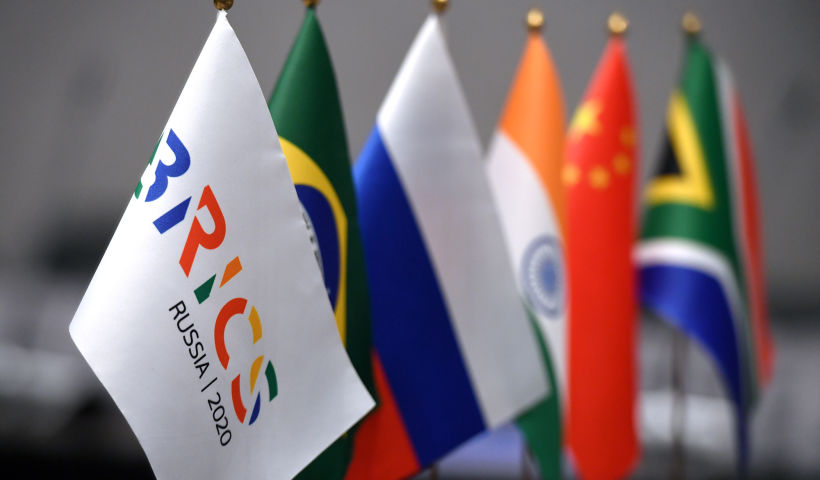
The Shorter the Delay, the More Effective the Neurofeedback
HSE University scientists have for the first time in the world investigated the impact of delayed reinforcement signals in neurofeedback (NFB) training. They have experimentally proven that reducing the delay in feedback (decreasing feedback latency) can significantly increase the efficacy of training.

The Perfect Coronavirus Storm: a Crisis with Hope for a Speedy Recovery
How high is the risk of a full-blown financial crisis after the pandemic? Which countries and regions are most at risk? Are national governments managing to cope with the challenge of preventing economic collapse? Such topics were the focus of attention at the annual conference organised by the HSE University Faculty of World Economy and International Affairs.
.jpg)
First International Recipient of DSc Degree in Mathematics From HSE University
Edmond W.H. Lee, a full professor at the Department of Mathematics, Nova Southeastern University, USA, has recently defended his Doctor of Sciences (DSc) thesis at the Dissertation Council in Mathematics, HSE University. The DSc in Russia is a higher doctoral degree that can be earned after the PhD. Professor Lee’s defence was held over Zoom, with the candidate and his dissertation committee members participating remotely from 5 cities in Brazil, Israel, Russia, and the USA. Lee became the first international recipient of a DSc degree in Mathematics from HSE University.

Yaroslav Kuzminov: As Digital Reality Develops, We Face More and More Infringements upon Freedom
Today, we need a coordinated agenda in order to understand how to develop a comfortable and safe technological environment and make the consequences of rapid technological development forecastable and manageable. This is what HSE Rector Yaroslav Kuzminov said at the National Academic Online Conference ‘Ethical and Legal Issues of Digital Transformation: From Conflict to Harmony?’

Academic Dishonesty: Fear and Justifications
End-of-term exams have just finished in many universities operating on the modular system. Some students passed because they worked hard while others passed by cheating. Why do some students cheat by looking over someone's shoulder, furtively searching for test answers on the internet, using cheat sheets during exams or paying others to complete their coursework? A study conducted by the HSE Centre for Sociology of Higher Education offers some answers.

HSE University Experts Analysed How Personality Affects Earnings and Career Outcomes
Openness, friendliness, tenacity, motivation, risk-taking, self-control and other non-cognitive components of human capital can be important determinants of earnings. And parental investment in their children’s non-cognitive skills affects their future academic and career success. This is set out in the work of HSE University’s Centre for Labour Market Studies (CLMS).

Yaroslav Kuzminov: A University That Learns — Three Missions and Three Pillars of a Modern University
A university in the modern world cannot remain an ‘isolated entity’ that focuses on education and scientific activity. Through public projects and initiatives, it has a significant impact on the development of both the country as a whole and its regions. This activity, which includes volunteering, charity, social support for students, and the transmission of knowledge to engaged citizens, has become known as the ‘third mission’.Yaroslav Kuzminov, Rector of HSE University, has published an opinion piece about the University’s ‘third mission’ in the VTimes.

Russia’s Middle Class: Between a ‘Sticky Floor’ and a ‘Sticky Ceiling’
Upward and especially downward income mobility in Russia is higher than in developed countries, making it difficult to form a fully-fledged middle class. And the likelihood of being trapped in long-term poverty turns out to be greater than the transition to stable affluence. This is the conclusion reached by HSE University experts.

A Dossier of Deities: HSE University Scholars Create Electronic Database of Chinese Mythological Characters
The Institute for Oriental and Classical Studies (IOCS) at HSE University is developing an electronic database of Chinese mythological characters and motifs. Because nothing like it has ever been compiled, it meets an enormous demand. Project originators Elizaveta Volchkova, Olga Mazo, Aglaya Starostina and Alevtina Solovyova told IQ what they are attempting to accomplish and why Chinese mythology is both complicated and fascinating.

Leaders of Russia and the People's Republic of China Discuss the BRICS Energy Research Cooperation Platform Created with the Participation of HSE University
At the twelfth BRICS summit held on November 17, Russian President Vladimir Putin and President of the People's Republic of China Xi Jinping spoke via videoconference about the importance of the BRICS Energy Research Cooperation Platform. Researchers from HSE Institute for Statistical Studies and Economics of Knowledge and the Institute for Economics and Regulation of Natural Monopolies are involved in the work of the Platform.

